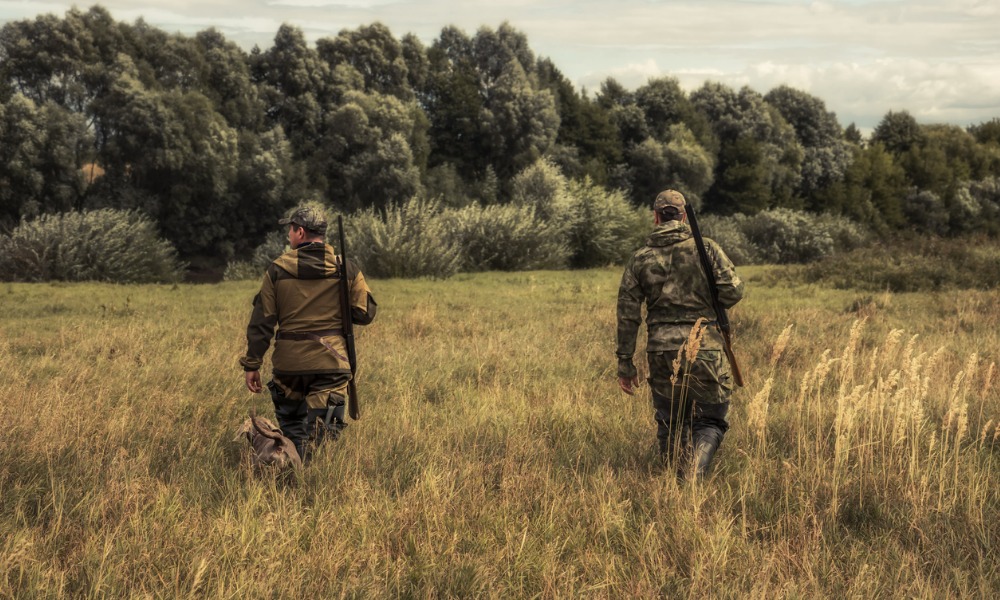Lower-court judges deciding case without proper evidentiary record: Saskatchewan Court of Appeal

The Saskatchewan Court of Appeal has ordered a new trial in a case involving constitutional issues that could potentially impact the rights of every Indigenous person in Canada and the hunting, fishing, and trapping resource bases of the prairie provinces.
The appellants in R v. Green, 2022 SKCA 92 were charged with unlawfully hunting and possessing wildlife under ss. 25(1)(a), 33(1), 41(1), 73, and 74(2) of The Wildlife Act, 1998, a consolidation of statutes in Saskatchewan, after they hunted in a Saskatchewan provincial park.
The appellants were residents of Ontario’s Six Nations First Nation, which was a signatory to the Nanfan Treaty. At trial, they defended themselves by invoking paragraph 12 of the Natural Resources Transfer Agreement (NRTA).
A judge of the Saskatchewan Provincial Court – relying on R v. Frank, 1977 CanLII 152 (SCC), [1978] 1 SCR 95 – ruled that paragraph 12 applied to the circumstances of this case and acquitted the appellants. The Crown elevated the case to the Saskatchewan Court of Queen’s Bench.
The appeal judge – citing R v. Blais, 2003 SCC 44 – entered convictions against both appellants. He held that the trial judge interpreted paragraph 12 too broadly and wrongly acquitted the appellants. He said that paragraph 12 was applicable only to “Indians attached to Treaty 2, 4, 5, 6, 7, 8 or 10 lands.”
The three NRTAs were constitutional documents that only applied to Alberta, Saskatchewan, and Manitoba, the appeal judge said, adding that these three agreements did not operate in other Canadian provinces and territories and did not extend benefits to Indigenous people from First Nations that signed treaties like the Nanfan Treaty, which covered lands beyond the three prairies’ geographical boundaries, he added.
On appeal, the appellants asked for the restoration of their acquittals on the ground that the appeal judge misinterpreted the NRTA.
Court of Appeal orders new trial
The Saskatchewan Court of Appeal allowed the appeal. The appellate court noted that the Crown and the appellants provided only a very brief agreed statement of facts to the trial judge, then asked the trial judge and the appeal judge to decide the case without the benefit of the evidence necessary for resolving the constitutional issues at play.
Thus, a new trial in the Provincial Court was necessary so that the Crown and the appellants could develop an evidentiary record that would enable the trial judge to interpret paragraph 12 in the manner that Blais required, the appellate court said.
The appellate court disagreed with the appellant’s claim that Frank decided the issues raised and controlled the appeal’s outcome for the following reasons:
- The issue in Frank was whether the Alberta NRTA effectively extinguished Mr. Frank’s right to hunt in Treaty 6 territory in Alberta, while the issue in this case was whether the NRTA created rights for all Indigenous people to hunt, fish, and trap for food.
- In Frank, then-Justice Brian Dickson likely did not intend to decide the rights of Indigenous groups who did not have harvesting rights that the NRTAs directly impacted and who were not parties in the proceedings before the Supreme Court of Canada, given the language at the beginning of his decision.
- Justice Dickson was focusing on existing treaty rights and on the extent of the impact of provincial boundaries on such rights. This was clear if one read his decision as a whole.
- It was unlikely that Justice Dickson would take the cautious approach that he did in Kruger v. The Queen, [1978] 1 SCR 104 – a BC Aboriginal hunting rights case released on the same day as Frank – then go on to resolve issues in Frank that the facts in that case did not raise.
- If Justice Dickson had intended the broad meaning of Frank that the appellants claimed, he would have reflected that meaning in his subsequent decisions tackling NRTAs. He did not do so.
- Other Supreme Court decisions did not describe Frank as having the expansive scope that the appellants alleged.
While some passages of Justice Dickson’s reasons in Frank used broad language, these were obiter dicta – said in passing – to the extent that they could be taken as addressing situations like the one in dispute in this case, the appellate court said.
Because Frank did not dictate the result of this appeal, it was necessary for a judge in the new trial to interpret paragraph 12 to determine whether it applied to Indigenous people in the appellants’ position and whether the appeal judge properly interpreted it in line with the approach in Blais, the appellate court concluded.
In Blais, the Supreme Court said that the court with the task of determining whether an Indigenous group was included in “Indians” under the NRTA should consider “the historical context, the ordinary meaning of the language used, and the philosophy or objectives lying behind it.”










